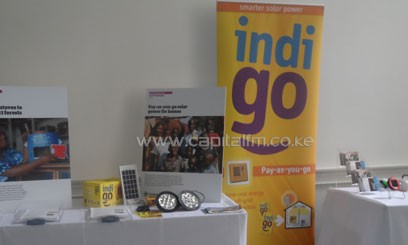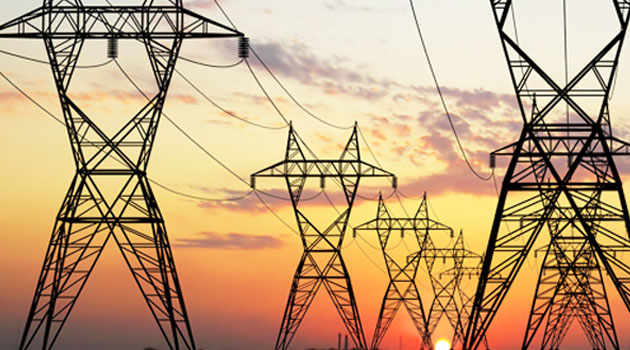
Mibawa Suppliers Limited has partnered with Azuri Technologies – a UK based company, to help connect 31.2 million people who still lack access to electricity in Kenya/CFM
NAIROBI, Kenya, Jun 27 – With electricity distribution being too costly, rural areas in the country are left with no option but to use kerosene lamps which are inefficient, dangerous and expensive with health and environmental complications.
A Kenyan based company has come up with a solution – a cheap, efficient, reliable, solar technology dubbed “pay-as -you go solar system – to help rural areas get electrification.
Mibawa Suppliers Limited has partnered with Azuri Technologies – a UK based company, to help connect 31.2 million people who still lack access to electricity in Kenya.
“We researched on use for kerosene and found out how expensive it is for many people who earn less than a dollar, we found out they use about a Sh1,000 every month and Sh400 for charging mobile phones, that’s when we decided to partner with Azuri Technologies to bring “pay-as-you-go-solar” in the country,” Michael Wanyonyi, Managing Director of Mibawa Suppliers told Capital FM Business.
A-pay-as-you-go solar system is a product by Azuri Technologies that seeks to provide solar technology that is cheaper than kerosene for rural areas.
“The system combines mobile phone and solar technology to allow customers to pay for their energy and equipment with scratch cards over a period of time,” he explained.
Azuri’s ‘Indigo Duo’ starter solar home systems consist of two lights and equipment for cell phone charging. Once users have paid for that system, they can then upgrade to larger systems.
“Users pay Sh1,000 for the system one off, and pay Sh120 a week through a scratch card, until they pay fully for the solar system (Sh11,100)that will take about 80 weeks and additional Sh500 for the system code given after full payment of the system,” he said.
Wanyonyi said, after they have fully paid for the solar system, the user fully owns it and doesn’t have to pay for it anymore.
The company has also pioneered Energy Escalator which encourages users to up-grade to larger systems over time, to access more electricity and ultimately reach full home electrification.
“Users move over time from a starting point as a disconnected rural farmer to an informed, connected one with the benefits of electricity and like an escalator, users can get off at any point and so are not committed to a long-term debt,” he revealed.
Users can move in four stages: from two lights and phone use (3Watts); four lights, phone, and radio (10Watts); four lights, phone, radio, and television (40Watts); four lights phone, radio, television and sewing machine (80Watts).
“Already we have over 3,000 users in the country and we are rolling out more with over 600 new customers every month. We’re looking into having over 10,000 customers in 2013, that means 10,000 lives changed by this technology” he said.
He said that the three year old company makes about Sh360,000 in a week and a turnover of about Sh30 million a year.
Wanyonyi said that the company partners with schools and churches to recruit people interested in working as agents and installers creating more jobs opportunities.
“Agents sell scratch cards and installers. We have created over 100 job opportunities and with the space for growth, more opportunities will be created,” he said.

































